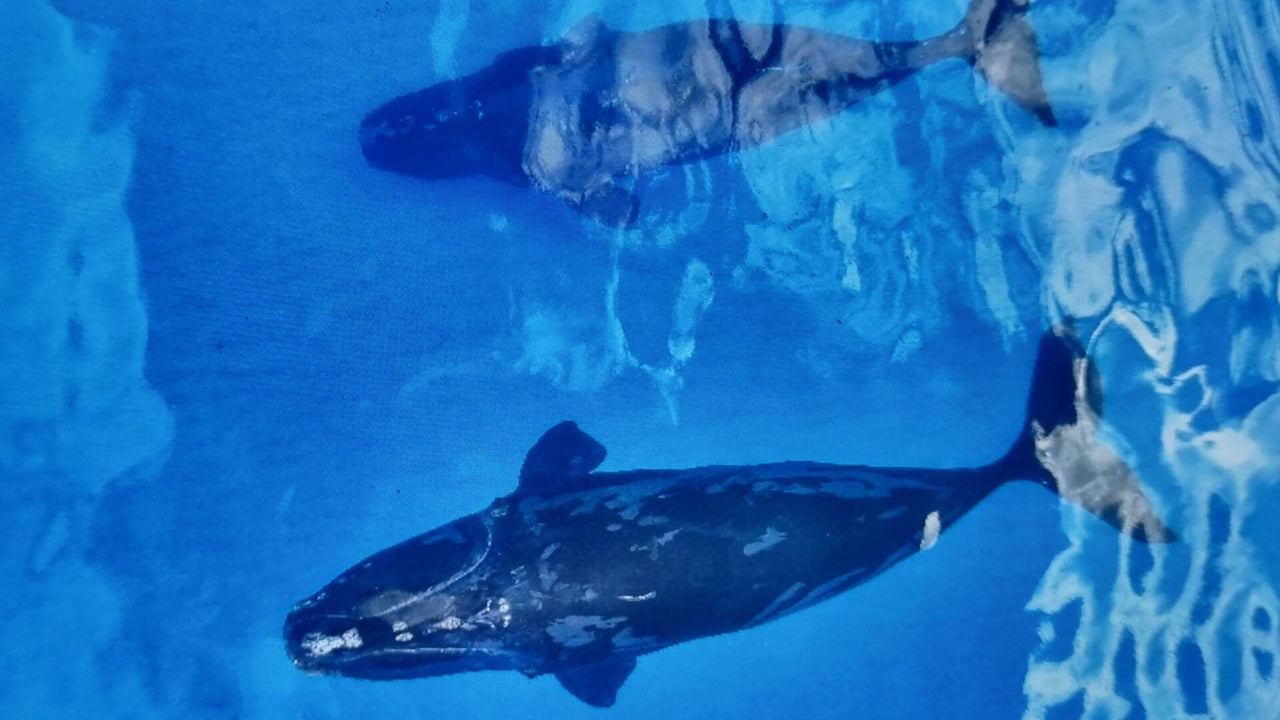Understanding the Critical Status of Right Whales
Right whales are a species of marine mammals known for their large size and distinctive appearance. However, these magnificent creatures are facing a critical status due to various threats, including ship strikes, entanglement in fishing gear, and habitat destruction.
The Endangered Right Whales: A Precarious Situation
Right whales are listed as endangered species, with only a few hundred individuals left in the world. The decline in their population is a major concern for conservationists and researchers who are working tirelessly to protect these majestic animals.
Challenges and Conservation Efforts
One of the biggest challenges facing right whales is their susceptibility to being hit by ships. Efforts such as implementing speed restrictions in known whale habitats and using technology to track whale movements aim to reduce these incidents. Additionally, initiatives to minimize fishing gear entanglement and preserve critical whale habitats are crucial for the species’ survival.
The Future of Right Whales: A Call to Action
As we look to the future, it is essential for stakeholders, governments, and the public to come together to support and implement conservation measures that will safeguard the survival of right whales. By raising awareness, promoting responsible marine practices, and investing in research and protection efforts, we can aspire to a future where these iconic marine mammals thrive once again.
The Significance of Their Presence in the Bahamas
When it comes to the Bahamas, the presence of influential individuals or entities can have a profound impact on various aspects of the region.
From a socio-economic perspective, the presence of high-profile individuals in the Bahamas can elevate the status of the destination and boost its global appeal. Celebrities, business tycoons, and affluent personalities often bring attention and investment to the local economy, stimulating sectors like tourism, real estate, and luxury services.
Moreover, the presence of renowned figures can contribute to the cultural enrichment of the Bahamas. Their influence may lead to collaborations with local artists, entrepreneurs, or philanthropic initiatives that benefit the community at large.
On a global scale, the visibility of prominent individuals in the Bahamas can serve as a marketing tool, attracting more visitors, investors, and media coverage. The association with well-known personalities can position the Bahamas as a desirable destination for leisure, business, or even for hosting high-profile events.
Overall, the presence of influential individuals in the Bahamas not only brings economic advantages but also enhances the country’s prestige, cultural exchange, and international recognition, solidifying its position as a sophisticated and vibrant locale in the eyes of the world.
Conservation Efforts for Protecting Right Whales
When it comes to safeguarding the majestic right whales, conservation efforts play a crucial role in ensuring their survival in the face of various threats. By implementing proactive strategies, we can help protect these magnificent creatures for generations to come.
1. Vessel Collisions
Vessel collisions pose a significant risk to right whales. To mitigate this threat, it is essential to enforce speed limits in whale habitats, implement real-time monitoring systems, and raise awareness among ship operators about the importance of slowing down in whale-populated areas.
2. Fishing Gear Entanglement
One of the leading causes of right whale mortality is entanglement in fishing gear. To address this issue, using innovative gear modifications, such as weak links or ropeless fishing technologies, can reduce the chances of whales getting entangled and enhance their safety in marine environments.
3. Habitat Protection
Preserving and expanding protected marine areas where right whales feed and breed is vital for their conservation. By establishing marine sanctuaries and enforcing regulations that limit human activities in these critical habitats, we can provide a safe environment for right whales to thrive.
4. Research and Monitoring
Ongoing research and monitoring efforts are essential for gaining valuable insights into the behavior and population dynamics of right whales. By conducting scientific studies, we can better understand their needs and develop tailored conservation strategies to address specific challenges they face.
5. Public Awareness and Advocacy
Increasing public awareness about the plight of right whales and advocating for stronger conservation measures is key to garnering support for their protection. Educational campaigns, community engagement, and partnerships with stakeholders can all contribute to fostering a culture of stewardship towards these vulnerable marine mammals.
How to Support Marine Wildlife Preservation
Breaking Down the Headlines
When it comes to supporting marine wildlife preservation, individual actions can make a significant impact. From reducing plastic use to supporting conservation organizations, there are various ways individuals can contribute to protecting marine ecosystems and wildlife.
The Bigger Picture
Marine wildlife preservation is crucial for maintaining biodiversity and ecosystem balance. Overfishing, pollution, climate change, and habitat destruction pose significant threats to marine life. By supporting preservation efforts, we can help ensure the health and sustainability of our oceans for future generations.
What This Means Going Forward
Going forward, it is essential for individuals, communities, and governments to work together to implement sustainable practices, policies, and conservation initiatives that safeguard marine wildlife. By raising awareness, supporting research, and advocating for stronger environmental regulations, we can protect and preserve the rich biodiversity of our oceans.
